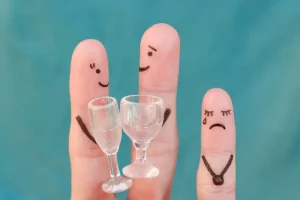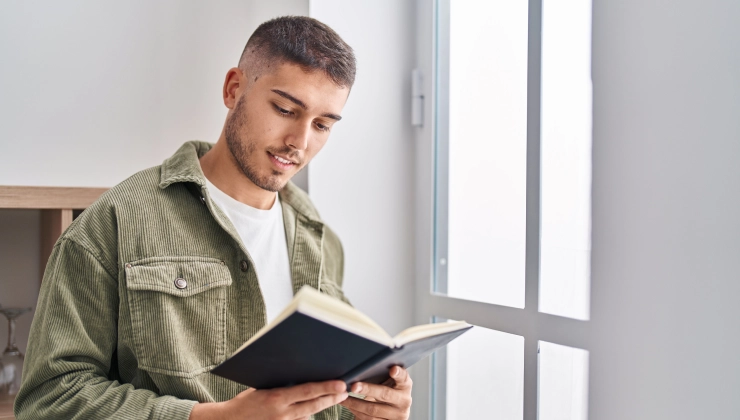The researchers set out to study chronotype alignment in a larger population. They examined middle-aged and older-aged adults in the United Kingdom, who were asked about their sleep, including their morning or evening preference. They were sent a wearable accelerometer (basically a fancy activity monitor, Zeitzer said) to track their sleep over seven days.
- These medications are tightly regulated and are only available with a prescription.
- Chronotype is a product of both the homeostatic sleep drive and the circadian timing [10].
- Sleep occurs over a sustained period, typically lasting approximately 8 hours inhumans.
- Alcohol intake was broken down into “low,” “moderate,” and “high” — categories that were calculated based on the participants’ body weight.
- On the surface, alcohol’s sedative effects can feel like they would ease the symptoms of insomnia and help you fall asleep.
Alcohol disrupts REM sleep
- A person can speak with a doctor to discuss the best way to treat and manage their condition.
- But if you’re struggling with night wakings, napping during the day—especially for too long or too late in the day—could impact your nighttime sleep quality.
- Our findings contrast with this study in that we did not find strong association between drinking and sleep duration.
- A number of studies have shown that drinking momentarily increases sleepiness, but later causes frequent nighttime and early morning awakenings.19) Individuals with alcohol use disorders frequently consume alcohol before sleep in an effort to improve their sleep.
But if you find yourself waking up multiple times a night, try not to exercise in the evening, preferably within two hours of bedtime, Mukkavilli says. Research found that intense physical activity late at night can impact sleep quality, alcohol insomnia likely because it increases your heart rate and body temperature. Research indicates that it may take as long as one to two years for sleep to return to normal in abstinent alcoholics and that for some it may never return to normal.
What are benzodiazepines?
- Grand mean evoked potential waveforms for alcoholics (red lines) and control subjects(black lines) for the FP1, Fz, FCz and Cz electrode sites.
- Subjects who reported that they exercised 3 times or more per week were defined as regular exercisers.
- Each group spent two nights in their respective environments, and were provided with alcohol to drink on one of these nights.
- But the more someone drinks, the more significant the impact, said Meadows, pointing to a 2018 study in the journal JMIR Mental Health.
- There’s a complicated relationship among depression, alcohol, and sleep.
No matter how much you drink, alcohol causes a significant increase in sleep disruption. You don’t even have to be drunk enough to break out the karaoke machine. The key is to drink in moderation and give yourself time before going to bed so the alcohol can clear your system. Interestingly, the harmful effects of alcohol were more pronounced among young people compared with seniors. These results were similar for men and women, and alcohol consumption affected sedentary and active people alike.

How drinking alcohol affects sleep
People who drink alcohol regularly might fall asleep quickly, but they’ll often wake up in the middle of the night because alcohol can inhibit the body’s ability to enter a deep stage of sleep. Insomnia is a disorder that prevents someone from achieving a restful night’s sleep. This could mean that they aren’t reaching a deep level of sleep, are waking several times through the night, or can’t fall asleep to begin with. Any of these possibilities mean that when the person wakes, they aren’t feeling rested. On a day-to-day basis, this doesn’t seem like that pressing of an issue. In the long-term, however, it can be detrimental to one’s mood, energy level, physical and mental health, work performance, and quality of life.
How much alcohol you drink and when you drink it can both influence sleep. If you are one of the nearly two thirds of Americans who drink alcohol, chances are, you’ve had a drink in the hours before bedtime. Maybe you enjoy a glass of beer or wine after dinner, or your weekends include drinking with friends at bars or social events.
- Sleep onset occurs when there are increased homeostatic (sleep-promoting) and decreased circadian (wake-promoting) drives (Borbely, 1982).
- Slow wave sleep is decreased early in recovery and gradually normalizes over time and around 2 years of sobriety (Williams and Rundell, 1981, Imatoh et al., 1986, Drummond et al., 1998).
- Individuals with mental health conditions are also more likely to develop insomnia.
- One study found that drinking alcohol an hour before you go to sleep can suppress melatonin production by 20%.
- Anyone experiencing insomnia should speak with a doctor to learn more about what treatments may work best for them.

Explore Stanford Medicine
